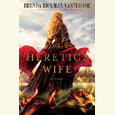Failure Club
April 19, 2010 Southern writers don’t let their men off easily. Think of Barry Hannah, Larry Brown, and George Singleton, to name just a few: their protagonists are a thick crowd of failed or ridiculously flawed, if infuriatingly likeable, Southern men—men who are more often than not their own worst enemies, men who pilot pickups across modern Southern landscapes that look and feel nothing like the generous front porches and magnolia-scented breezes of Southern Lit as we once knew it. Enter Jack Lang, a modern Southern man whose life crisis is held up, often comically, for observation in This Is Just Exactly Like You, the debut novel from North Carolina writer Drew Perry, who will appear at Davis-Kidd Booksellers in Nashville on April 21 at 7 p.m.






